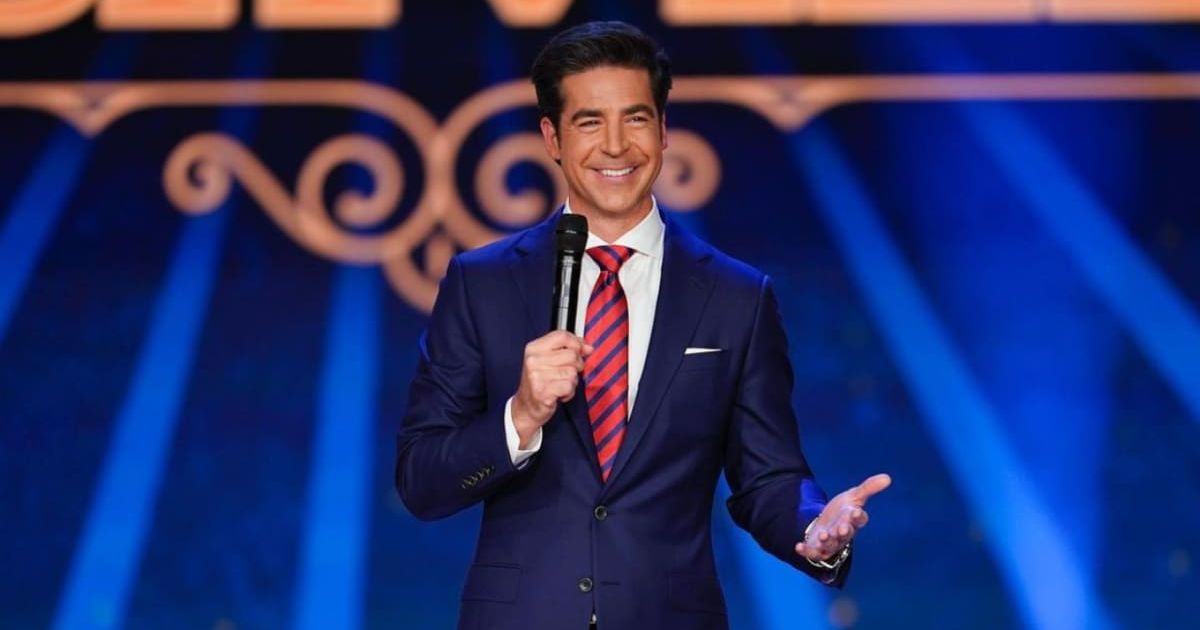‘Why do people believe things?’ Jesse Watters claims people’s radical ideas are ‘rooted in personal struggle’ in latest book

NEW YORK CITY, NEW YORK: During his man-on-the-street segments, Fox News host Jesse Watters usually had no more than 10 minutes to interview people.
As he transitioned to a primetime host, his time for in-depth conversations with interview subjects has diminished even further.

Jesse Watters unveils origins of radical ideologies, takes insights from his book
This reality served as the impetus for his latest book titled 'Get It Together: Troubling Tales from the Liberal Fringe', published by Broadside Books and released on March 19.
In the book, he reflects, "I wasn’t getting close to the core: Why do people believe things? How did they end up with their worldviews? What gave them these radical ideas?”
“I set out looking to interview out-of-the-mainstream Americans," he added, continuing, "Not debate them, just listen to their life stories. I’d listen for two hours, three hours, sometimes four."
Watters further said, "What I found was that their maverick ideology was rooted in personal struggle. I’d always assumed someone’s political belief system was based upon the books they’d read or the media they’d consumed."
"Not entirely. A big factor in a person’s policy preference or political identity? Formative experiences in their youth," he then added.
He further wrote that “many of the characters I interviewed for this project had experienced drugs and alcohol early” and “almost all of them had disastrous parents".
The resulting book comprises 22 chapters, each centering on an extreme leftist individual, delving into not only their beliefs but also the journey that led them to adopt such ideologies.
As per the New York Post, below are excerpts from three of these chapters.
The Open Borders Professor
The text discusses Joe Carens, a prominent political science professor at the University of Toronto known for his work on immigration ethics. Carens advocates for open borders, arguing that people should be free to leave their country of origin and settle wherever they choose.

He emphasizes fairness as a guiding principle and calls for a re-evaluation of existing institutions to ensure they are just.
Watters speculates that Carens' focus on fighting unfairness may stem from his own experiences, suggesting that he may have been abused as a child, possibly by a Catholic priest or a family member.
This speculation is based on Carens' aversion to Catholic churches and his yearning for fair institutions that protect the vulnerable, connecting it to repressed memories of a traumatic event.
The Toad Smoker
The text introduces Hector, who engages in a unique practice of smoking toad venom for spiritual experiences.
He sees it not as a vice but as a means of guiding others spiritually. The psychedelic effects of the toad secretion can be intense, leading users to briefly experience the afterlife.
Hector himself has faced numerous challenges in life, including drug use, possibly as a way to cope with past trauma, such as being born premature and experiencing molestation.
He has also endured physical violence, including a severe beating from friends.
Hector's relationship with his absent father adds another layer to his complex background, as he tries to understand his heritage and connect with his family.
Despite his struggles, Hector remains reflective and open about his experiences.
The Anti-Natalist
Alexandra Cuc is an anti-natalist who firmly believes in not having children and actively promotes this viewpoint through her organization Stop Having Kids.
While many anti-natalists are driven by environmental concerns, Alexandra's reasons run deeper, rooted in her personal experiences and upbringing in Romania under communism.
She underwent a tubal ligation and convinced her boyfriend to undergo a vasectomy, reflecting her strong commitment to not having children.

Her decision was influenced by her own difficult childhood, marked by family tensions and emotional neglect.
Despite her upbringing, Alexandra emphasizes personal responsibility and calls for individuals to address their own issues rather than expecting others to compensate for them.
She urges people to strive to be better than their parents and take control of their own lives.










